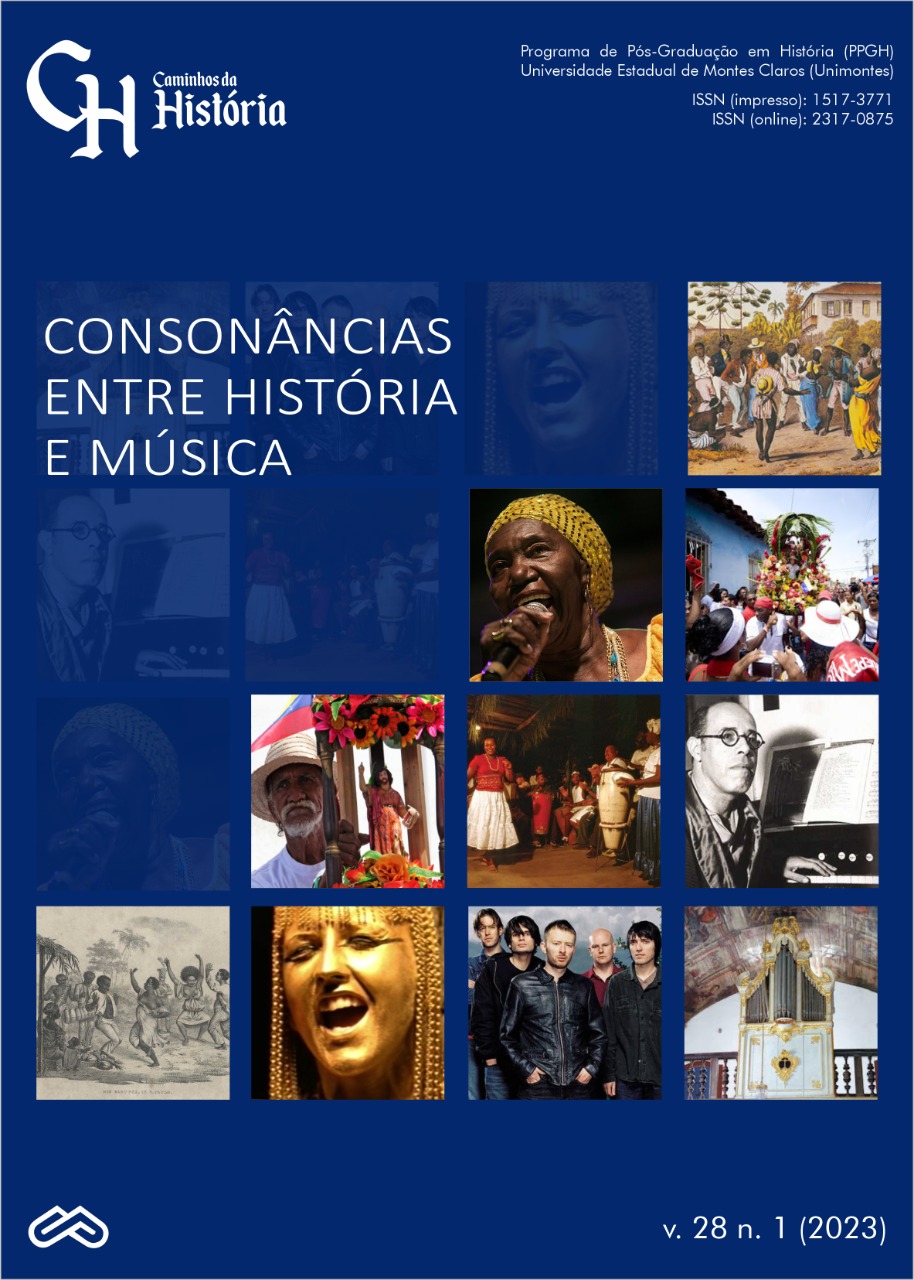“Zombie”: terrorism, violence and globalization in the success track from “The Cranberries”
“Zombie”: terrorism, violence and globalization in the success track from “The Cranberries”
DOI:
10.46551/issn.2317-0875v28n1p.99-116Keywords:
terrorism, violence, globalization, history, video clipAbstract
Technological advances, notably in the 20th century, boosted the creation of mass destruction weapons that, from the “grapeshot” to nuclear weapons, terrified the world in the Age of Catastrophe – 1914 – 1945, a term used by the historian Eric Hobsbawm. In the same perspective, the Cold War period (1945-1991) was also marked by terrorism, violence, and advance of the recording industry, in which rock and roll, mainly in the 1969 Woodstock, enhanced counterculture actions with criticism of violence, of the bureaucratic State and the capitalism. From this context, in the 90s, the band The Cranberries, and the song Zombie, produced in 1994, criticized terrorism inspired by the attack in Warrington, England, that killed two kids, Tim Parry and Johnathan Ball, 12 and 3 years old, respectively. The actions of the nationalist Catholic group IRA not only motivated the Irish band but also justified the analysis of the mentioned song video clip to investigate its connection and audiovisual productions to civilization clash and terrorist actions that persisted and strengthened, even with the last-minute Cold War, in 1991.
Downloads
References
ANSART, Pierre. As humilhações políticas. In: Sobre a humilhação: sentimentos, gestos e palavras. Izabel Marson, Mária Narxara (org). Uberlândia: EDUFU, 2005.
ARENDT, Hannah. A Condição Humana. Rio de Janeiro: Forense. Universitária, 2007.
ARIÈS, Philippe. História Social da Criança e da Família. São Paulo: LTC, 1981.
BARROS, Jose D´Assunção Barros. História e Música: considerações sobre suas possibilidades de interação. História & Perspectivas. Uberlândia, 2018.
BENJAMIN, Walter. A Obra de Arte na Época de Sua Reprodutividade Técnica. In: Teoria da Cultura de Massa. Luiz Costa Lima (org). São Paulo: Paz e Terra, 2000.
BRIGS, Asa. BURKE, Peter. Uma história social da mídia: de Gutemberg à Internet. Rio de Janeiro: Zahar, 2004.
DEMANT, Peter. O mundo muçulmano. São Paulo: Contexto, 2014.
HOBSBAWM, Eric. A era dos extremos: o breve século XX: 1914-1991. São Paulo: Companhia das Letras, 1995.
JAMESON, Fredric. A cultura do dinheiro: notas sobre a globalização. Petrópolis: Vozes, 2001.
KELLNER, Douglas. A cultura da mídia – estudos culturais: identidade e política entre o moderno e o pós-moderno. São Paulo: EDUSC, 2001.
LAQUEUR, W. Thomas. The New Terrorism: Fanaticism and the Arms of Mass Destruction. New York: Oxford University Press,. 1999.
MARIUZZO, Patrícia. 40 anos do festival que marcou a música e as gerações. Cienc. Cult. [online]. 2009.
NAPOLITANO, Marcos. A História depois do papel. In: Fontes Históricas. São Paulo: Contexto, 2006.
SARTRE, Jean-Paul. O existencialismo é um humanismo. Trad. e notas de Vergílio Ferreira. Lisboa: Presença, 1961.




















